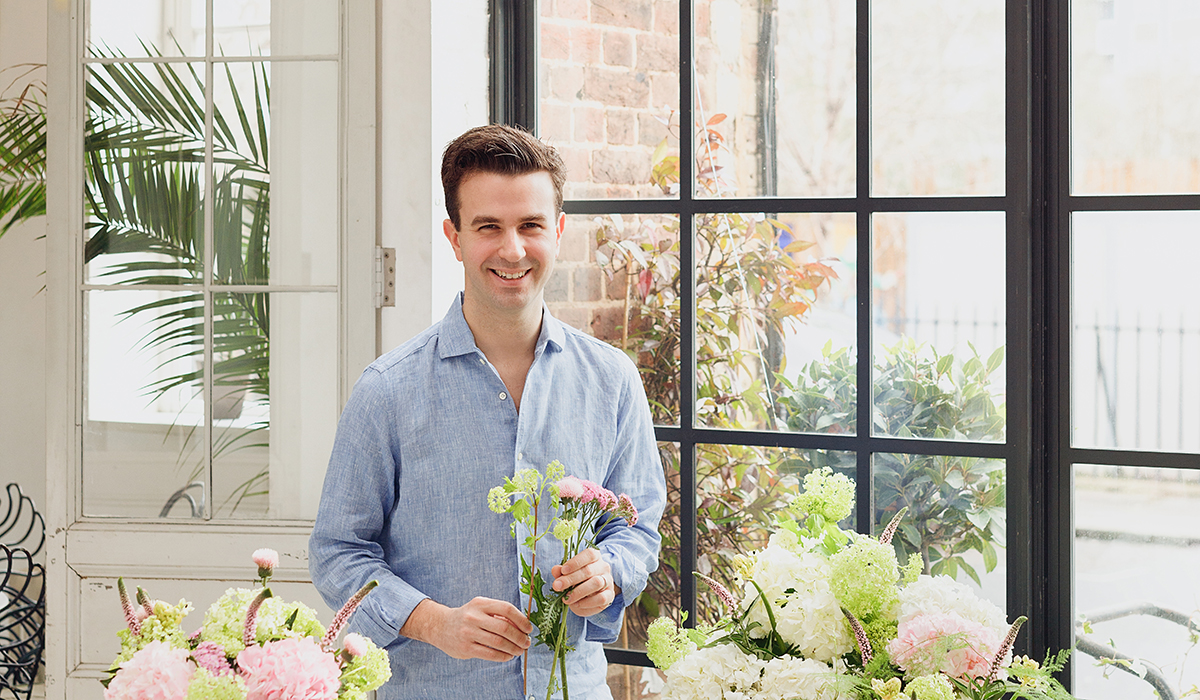Budding entrepreneurs eager to secure growth investment may want to follow the path of online florist, Bloom & Wild.
The company, whose flowers are packed and posted through customers’ letterboxes, has partnered with a wide range of investors, from angels to venture capitalists, since co-founders Aron Gelbard and Ben Stanway first put down its roots in 2013.
It secured £1m of seed funding from angel investors in its first two years with cash spent on scaling its marketing and tech platform. Sales powered forward, driven by Valentine’s and Mother’s Day, and soon more cash was needed.
“We sought venture capital to accelerate our growth and improve our customer proposition,” says Gelbard. “We were looking for investors who could support our growth ambitions, understand our business and add value.”
In the summer of 2015 it secured £2.5 million of funding from MMC Ventures.
“We spoke to a number of VCs but MMC had already invested in Pact Coffee, which is a similar business to ours. We also really liked the people there,” he states. “It was the right amount of money to pursue our next growth phase, expand our team, bring in new skills and invest in customer experience but not result in unnecessary dilution of our equity.”
Tom Allchorne, in-house lead for the Venture Capital Committee at the British Private Equity & Venture Capital Association, says Bloom & Wild’s story is familiar.
“Many start-ups will raise angel or seed funding prior to seeking venture capital, but it is not unusual to see them invest alongside each other,” he states. “They use VC funding for product development and marketing, to set up their manufacturing and sales operations and employ new staff. VC firms also bring business expertise, skills and contacts.”
Finding the right investor
But VC investment also means giving up equity and, with that, a degree of management control. If there is a misalignment in both valuation and strategy, then relationships can sour. Care then must be taken in finding the right investor. But how?
“Venture capital can look like some monolithic block but every firm has its own culture and personality,” explains Allchorne. “Do your research. If you have any VC contacts, leverage their experience. Many VCs specialise in certain sectors, and some invest at different stages in the company’s lifecycle. Most now have very good websites that can tell you where they like to invest and how much they usually invest.”
However, Will Gibbs of Octopus Ventures, which has invested in success stories such as Zoopla and Secret Escapes, says not enough entrepreneurs are doing their homework.
“VC investment is for entrepreneurs looking to supercharge their growth, with them typically having to give up 20% to 30% of equity and a board seat,” he explains. “The feel of your business will change overnight so you have to be prepared to give up some control. Also, VCs want returns and exits typically after between five and seven years, so there could be a mismatch in terms of revenue and strategic expectations. Not enough entrepreneurs understand these fundamentals.”
He advises entrepreneurs to do their due diligence including asking prospective VCs to carefully model the impact of specific deal terms and what this might mean at the point of exit. “What does success look like in terms of revenue targets and does that suit you?” he says. “Speak to other companies in that VC’s portfolio and ask them what the experience has been like and what value they have added.”
Gelbard agrees. “It's worth understanding which investors are active in your space and will understand and add value to your business. Also, be clear on what stage or size of company an investor focuses on as this will give you an idea of what their expectations from an investment might be. “
Working together
On this issue of control and influence, Ian Richards, director of Northstar Ventures, stresses the importance of a strong working relationship.
“Some entrepreneurs are worried about how their spirit and drive will work with a financial firm,” he says. “As a minority investor, we want to be treated fairly but we are not experienced in running your business. We will discuss strategy and have regular liaisons but we will not interfere operationally. The personal chemistry between entrepreneur and the investor is therefore vital. Speak to a VC early and get a real feel for how positively they view you and your business.”
Gelbard has recently sought further investment – this time a £3.75 million round with MMC and Burda Principal Investments. It hopes to expand internationally in Germany and France.
“Burda made sense because of their international experience and network and because of their experience investing in similar spaces to us,” he explains. “Plus, multiple VC investors means a healthy boardroom with a number of value-adding voices. Being an entrepreneur is hard work but we will always make time for investor meetings because of the learning from them. You just need to find the best fit.”
Please note this is unlikely to be the first option for raising finance, as there will be conditions attached by the fund managers to any agreement reached, which by their nature will be more onerous than those imposed by a mainstream lender.




